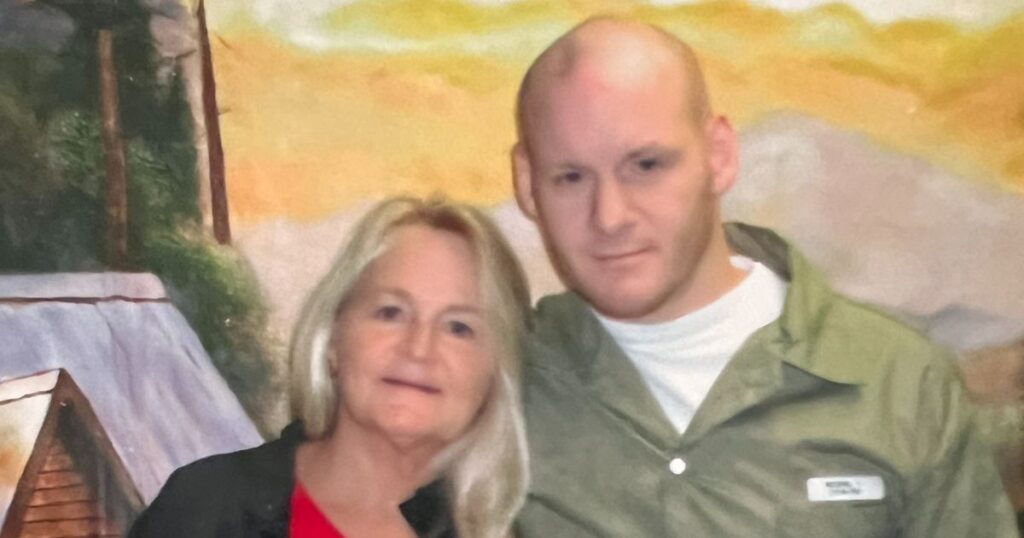Frank Rogers has served over a decade on a 220-month sentence for a nonviolent cannabis charge. He’s not asking for pity. He’s asking for faith in the work he’s done, in the man he’s become, and in a second chance that actually matches the moment we’re living in.
Frank grew up watching his single mother, Rose, do everything she could to keep the lights on. Like many young people boxed in by limited options, he found what was available—not because he aspired to be a major dealer, but because the world didn’t exactly roll out opportunities for stable work. That choice, made in that place and time, cascaded into a federal case that handed him more years than many violent offenders ever see.
“My heart dropped… when the judge looked me in my face and sentenced me to more time than most murderers get. I was flabbergasted,” Frank recalls. We’ve all read the sentencing horror stories from the height of the drug war.
Frank’s case is a modern rerun of an old script: nonviolent conduct, a career-offender enhancement based on his past juvenile record, and a guideline range that would almost certainly look different today. Policy has moved forward, but Frank’s life remains stuck in the past.
Click here to sign Franks petition.
Real Rehabilitation Behind Bars
There’s a popular myth that prison is where people go to “pay their debt.” In reality, it’s often where people get buried under interest. Frank refused that fate. He treated incarceration like a full-time personal development program.
He completed parenting classes in phases one and two, anger management courses, resume and employment readiness training, and studied The 7 Habits of Highly Effective People.
Beyond those, he enrolled in dozens more programs focused on communication, stress management, and self-improvement. That’s over 50 courses and counting, stacked not as résumé padding, but as a toolkit for a different life.
Frank’s conduct reflects his commitment. He’s maintained consistent good behavior, demonstrated personal accountability, and shown a clear dedication to returning home better than he left.
“I’m asking the system and the president to have faith in me and give me a chance at life… I have big plans as a future business owner and productive citizen,” Frank Rogers says. Rehabilitation isn’t a vibe or a PR tour. It’s measurable change. Frank has done the work.
A Solid Reentry Plan Waiting to Launch
This is the part where people ask, “Okay, but what happens when he gets out?” For Frank, that question already has an answer. He has day-one housing secured with his mother in East Syracuse, New York.
He also has a day-one job waiting—a guaranteed full-time position with Environmental Protection Services, Inc., working in environmental safety and remediation.
That’s stability and purpose, the two pillars of successful reentry. Add to that a family waiting with open arms, and you have the kind of wraparound support that research shows reduces recidivism and accelerates community reintegration. This is the cleanest landing strip you could sketch. Meanwhile, Rose’s his mothers health is declining. The most valuable resource in any reentry is a strong support system. Keeping Frank incarcerated while that support system ages and weakens isn’t “smart on crime.” It’s wasteful and cruel.
The Sentence Doesn’t Match Today’s Reality
Let’s put a finer point on it. Frank’s career-offender designation, tied in part to juvenile conduct, supercharged his sentence. Under current federal sentencing standards, that enhancement likely wouldn’t apply the same way today. Yet the old calculus still dictates his fate. That’s not justice. That’s bureaucratic momentum.
States are licensing cannabis businesses, clinics recommend THC and CBD for sleep and pain, and voters across the map keep choosing regulated markets over prohibition.
However you feel about cannabis, it’s obvious that Frank’s punishment no longer fits the moment or the man. If clemency means anything, it’s the willingness to correct what time and experience expose as excessive. This is exactly that case.
Hear From the People Who Live With the Consequences
Justice isn’t abstract. It has a face, a voice, and a family. You can watch Rose talk about her son and the cost of years she can’t get back.
You can also hear Frank Rogers in his own words, unfiltered by paperwork, in a prison call recording.
You’ll find no excuses in those clips, only resolve and a plea for proportionality. The “tough on crime” era sold us certainty in place of wisdom. These videos ask us to choose the latter.
What Public Safety Really Means
Public safety isn’t measured by how long we can keep a nonviolent man in prison for marijuana. It’s measured by whether our policies produce safer communities, stronger families, and futures that inspire people to choose better paths.
Frank is zero risk to public safety and a net positive to the workforce, to his family, and to a community that could use more men who’ve learned hard lessons and want to build. Keeping him inside any longer accomplishes nothing, unless your goal is to waste taxpayer money and break a mother’s heart.
The Humanitarian Urgency Is Real
Frank’s case doesn’t just check the legal boxes for reconsideration. It rings the humanitarian alarm. His mother’s health is fading. He has served more than half his sentence.
His support system—housing, employment, and family—is ready now. Clemency delayed is clemency denied, because time is the one thing no one can refund.
“I didn’t want the street life… I knew I had to take care of myself and my family… never did I think it would lead to 20 years—not for marijuana,” Frank says.
How You Can Help Right Now
This part is simple. If you believe punishment should fit both the person and the times we live in, add your name and share widely. Sign and share the petition to free Frank Rogers from unjust cannabis incarceration.
Call and write your representatives to support executive clemency and sentencing reform for nonviolent cannabis prisoners who’ve demonstrated rehabilitation and have a verified reentry plan. This isn’t about politics. It’s about proportionality, compassion, and common sense.
- Breeding the Culture: Mel Frank, Afghani No.1 and Durban Poison
- Importing the Curious & Exporting the Culture in 2022: The International Cannabis Business Conference
- International Cannabis Business Conference (ICBC) Leads the Way in Mainstreaming the Global Cannabis Industry
- Robert Kennedy Jr Calls For Marijuana Legalization To End Addiction In Campaign Ad
- Edwin Rubis is 27 Years In To a 40 Year Sentence for a Nonviolent Cannabis Crime – Beard Bros Media is Calling on You to Help Free Him
















